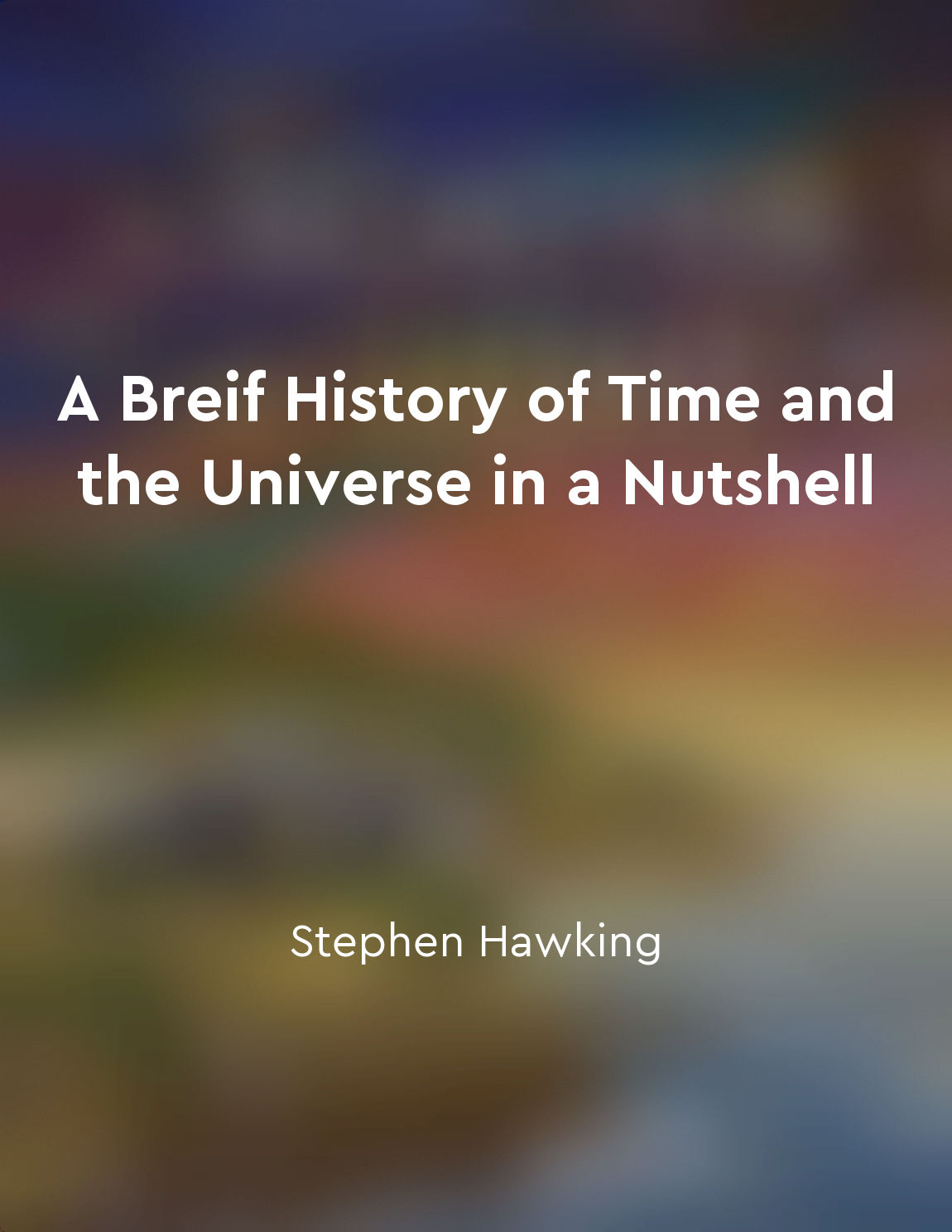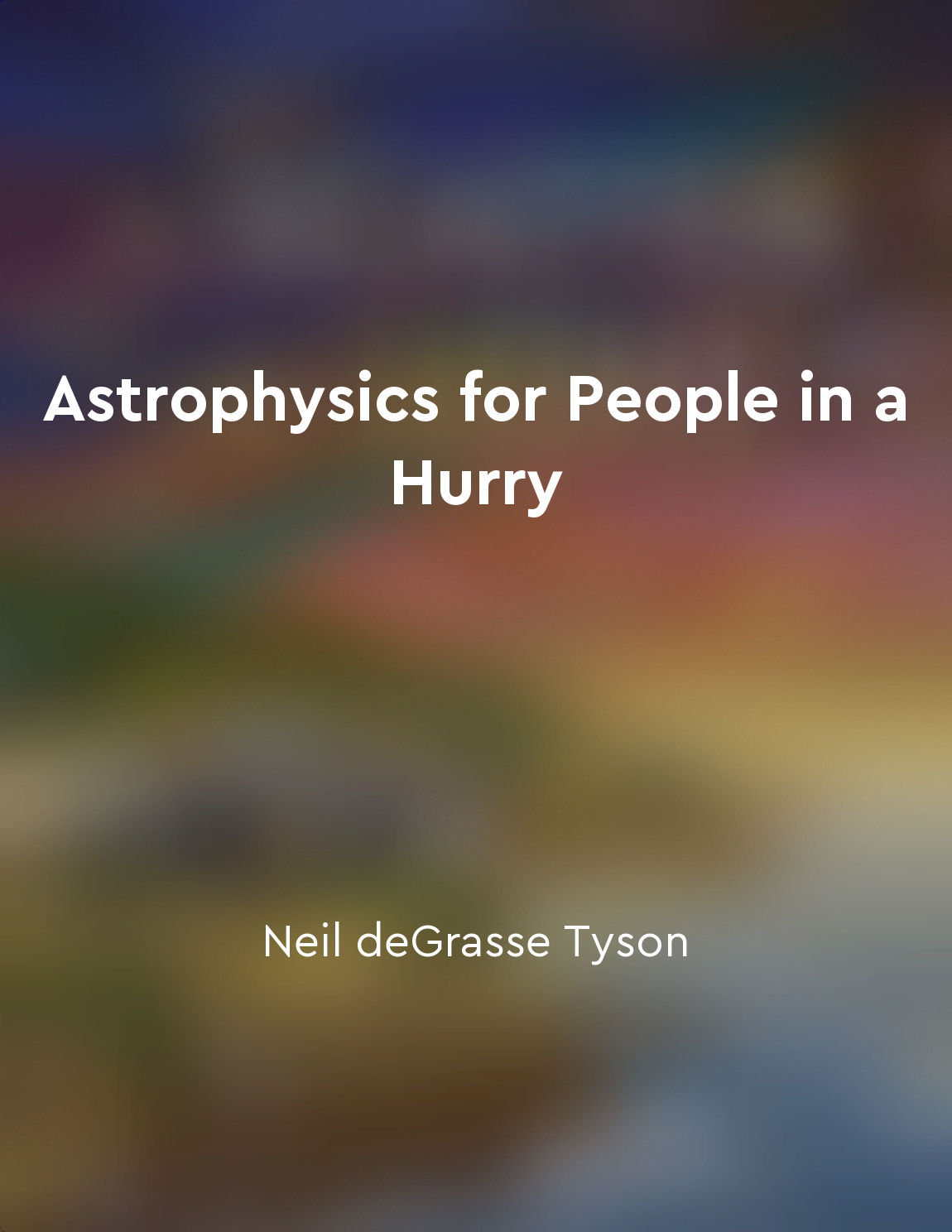Theoretical models help understand universe from "summary" of A Brief History of Time by Stephen W. Hawking
Theoretical models play a crucial role in helping us understand the universe. These models are essential tools that scientists use to make sense of the vast complexities of the cosmos. By developing theoretical frameworks based on observations and experiments, scientists can create simplified representations of the universe that help us make sense of its underlying structures and behaviors. Through theoretical models, scientists can make predictions about the universe and test these predictions against observations and experimental data. This process allows us to refine our understanding of the universe and gain insights into its fundamental workings. Theoretical models provide us with a way to extrapolate beyond what we can directly observe, allowing us to explore the far reaches of space and time. One of the key strengths of theoretical models is their ability to unify seemingly disparate phenomena under a common framework. By developing models that can explain a wide range of observations and data, scientists can create a more coherent and comprehensive understanding of the universe. This unification allows us to see connections and relationships between different aspects of the cosmos, leading to deeper insights and discoveries. Furthermore, theoretical models can help us push the boundaries of our knowledge and explore new ideas and concepts. By developing and testing theoretical frameworks, scientists can challenge existing theories and propose new ones that better explain the universe's mysteries. This process of continuous refinement and exploration is essential for advancing our understanding of the cosmos and pushing the boundaries of scientific knowledge.- Theoretical models are powerful tools that help us unlock the secrets of the universe. By creating simplified representations of the cosmos, scientists can make predictions, test hypotheses, and explore new ideas. Through theoretical modeling, we can gain a deeper understanding of the universe and its underlying structures and behaviors.
Similar Posts

Time is not absolute
In our everyday experience, time seems to flow smoothly from past to present to future, ticking away consistently. However, acc...

The discovery of exoplanets has opened up new possibilities for life beyond Earth
The discovery of exoplanets, or planets beyond our solar system, has revolutionized our understanding of the universe. These wo...
Consciousness arises from complex neuronal connections
The human brain is a complex organ made up of billions of neurons that communicate with each other through intricate networks o...
Understanding fundamental laws enables prediction of universe's behavior
Fundamental laws provide the framework upon which the universe operates. These laws are the building blocks of reality, governi...
Examining the impact of relativity on modern physics
Abraham Pais delves into the profound implications of relativity theory on modern physics. The theory of relativity, propounded...
Universe's grand design remains a mystery
The quest to understand the universe has been a driving force for humans throughout history. From ancient civilizations to mode...
Understanding fundamental laws enables prediction of universe's behavior
Fundamental laws provide the framework upon which the universe operates. These laws are the building blocks of reality, governi...
Laws of physics allow complex structures like humans to form
The existence of complex structures like humans may seem like a miraculous occurrence, but according to the laws of physics, it...
Perception of reality influenced by brain's functions
Our perception of reality is a direct result of the way our brains function. The brain acts as a filter, processing the vast am...
EPR paradox highlights issues in quantum theory
The EPR paradox poses a significant challenge to the core principles of quantum theory. The paradox arises from the entanglemen...

